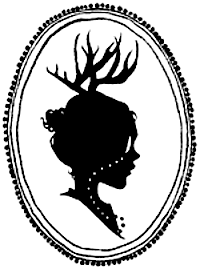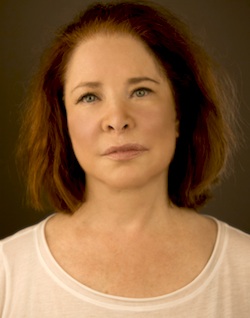
| Jacket 40 — Late 2010 | Jacket 40 Contents | Jacket Homepage | Search Jacket |
This piece is about 3 printed pages long.
It is copyright © Barbara Claire Freeman and Jacket magazine 2010. See our [»»] Copyright notice.
The Internet address of this page is http://jacketmagazine.com/40/freeman4poems.shtml

Serial, 9
the museum of bones finally arrives
from the air it looks like flatland
plain as a glass that does not give back
any image by day abloom with plastic
metal shredded aluminum shrapnel
it is impossible to see the fuselage
even as we struggle to record
the whitelight it has skeletal windows
an army that cannot be turned back
Sorbitol for Sugar
We can hear any number of people
talk about the watertower,
the rain battering windows,
how the plot had to be given up,
then replaced. They said
clouds would decrease in the late afternoon.
I wonder where substitutes are hidden.
Rubylight. Ice chips. Pieces
missing from the jigsaw puzzle.
But it’s not that simple.
In the jewelry-box nicknamed “Dora’s,”
there’s a tiny dictionary, bookmarked.
“Antithesis,” brother to “prosthesis,”
sister to “synthesis,” divorces Theseus,
murders Odysseus, fucks Narcissus…
for years Freud wore a prosthetic jaw.
Quick! Find the replacement.
But not like that. Faster.
Speechless, Unable to Stand, an Infant Gazes into a Huge, Icy Mirror
So it begins. Hey, says X, is this the body
in pieces? No, knucklehead, it’s le corps morcele.
You can ask but there will be no reply.
The ground rises like dough, it’s awful,
everywhere you look there’s an edge,
a glistening-back that can’t be brought
over into English, the mirror is dead —
what of it? You can’t plant anything
in one. Such is the smoothness of surfaces:
look down, look up. As I recognize this poem
as a mirror-image of itself, I am jubilant.
I can see how someone else might like it.
Ashes, 2
impossible to remember the names
of names left behind
mud sea and its shore
breakers chasing and being chased
the dead who do not seem to know
the end of the things of the world
its weeds and patterns its rivers
its old half-turned-over ship
untethered mast broken
so that we for whom absences gather
whether or not we welcome them
live now in darkness that does not know
or need us weightless as the night
the circle we thought ourselves to live in
whether or not we welcomed it
flattens slopes our forests corpses
sky mixed with sky sky cut with ice
folded along every turn or else

Barbara Claire Freeman
Barbara Claire Freeman is a literary critic and professor of literature who has recently turned her full attention to writing poetry. She is the author of The Feminine Sublime: Gender and Excess in Women’s Fiction (University of California Press, 1998, pbk. 2000), among many other works of criticism and theory. Formerly an Associate Professor of English at Harvard, she teaches creative writing for the Department of Rhetoric at the University of California, Berkeley. Her poems have appeared in A Public Space, Beloit Poetry Journal, Boston Review, Colorado Review, Crazyhorse, Denver Quarterly, Harvard Review, Iowa Review, Laurel Review, Modern Review, New American Writing, Sycamore Review and Parthenon West Review, among others. She is a recipient of the Discovery/Boston Review Poetry Award (2008); the Campbell Corner Poetry Prize (Sarah Lawrence College, 2007); and a Pushcart Prize nominee (2007–2009). Incivilities, her first book of poems, was published by Counterpath Press (2009). A chapbook, St. Ursula’s Silence, appears in An Instance: Three Chapbooks, published by Instance Press (2010). New poems have recently appeared or are forthcoming in Berkeley Poetry Review, Crazyhorse, Forklift, Ohio, and Volt. She lives in Berkeley, California.